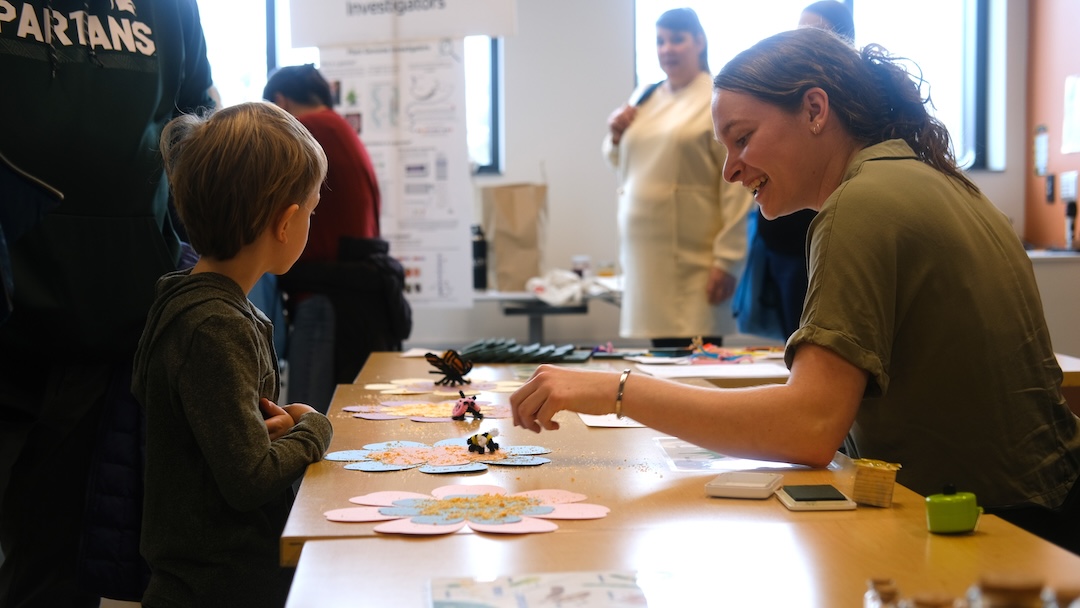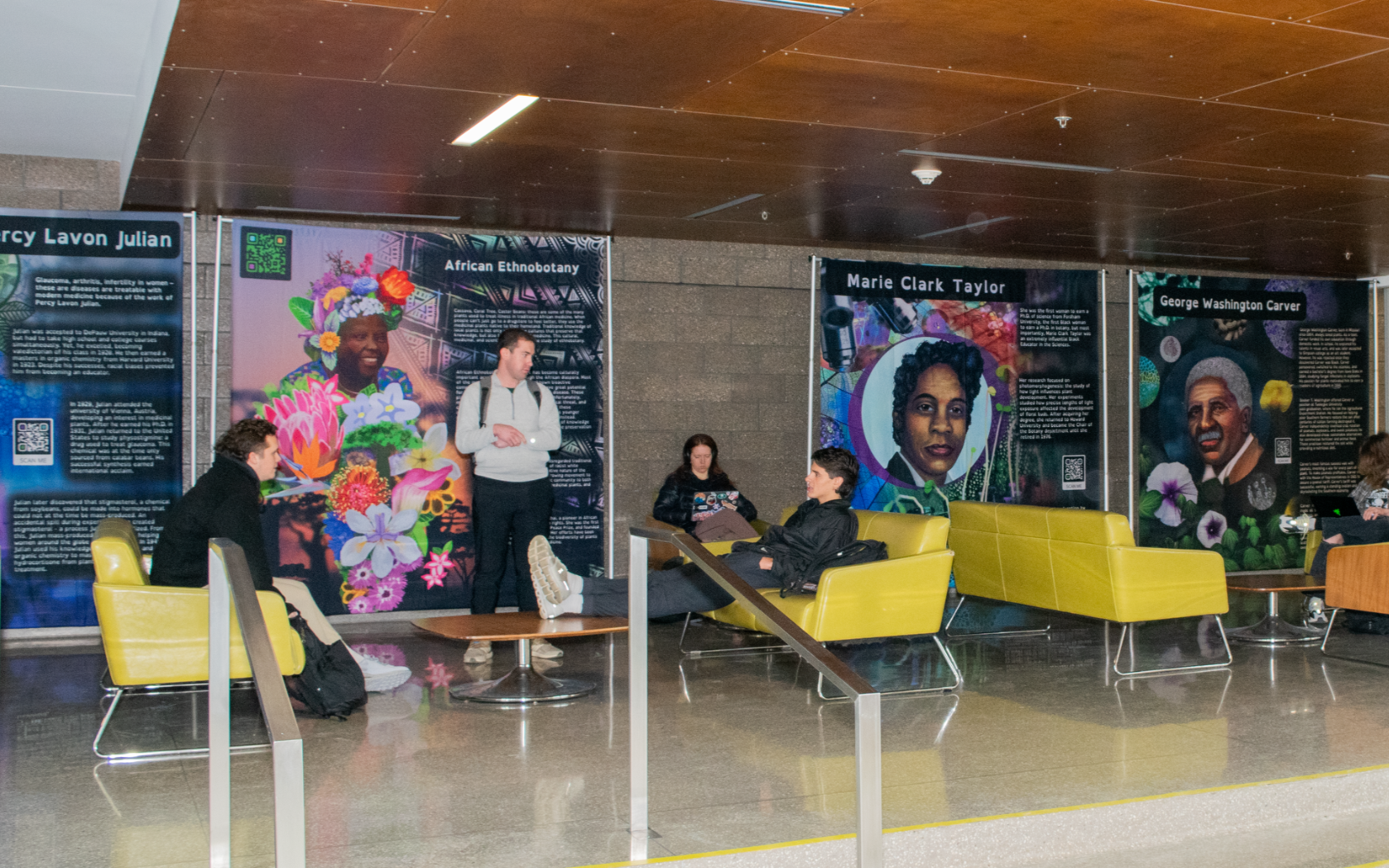Outreach Initiatives
The Plant Resilience Institute (PRI) aims to be a national leader in community engagement and outreach around plant resilience by fostering curiosity and promoting science literacy. Our outreach initiatives reach a broad spectrum of communities from K-12 students and educators, to growers in the field, industries, activists, and the general public.
If you're interested in having PRI scientists at your outreach event, please contact us at pri.admin@msu.edu.
K-12 Student Outreach
Michigan State University Science Festival
Plant scientists from labs and research groups across campus, including several PRI labs, have participated in the MSU SciFest STEAM Expo Days for the past two years. PRI's booths provide visitors of all ages with an opportunity to explore the fascinating world of plants through hands-on activities, experiments, and educational displays.

Beginning in 2025, PRI brought 17 unique booths dedicated to different aspects of plant science together in the "World of Plants" room. This initative reached approximately 450 families, allowing them to connect with experts, ask questions, and deepen their understanding and appreciation of plant science.
Glencairn Elementary School Science Night
PRI labs visit Glencairn Elementary School in East Lansing, Michigan for their annual Science Night. Through hands-on activities aimed at young minds, PRI researchers are sparking curiosity in the next generation of scientists.
Mystery of the Monkey Flower
The Lowry lab, in collaboration with MSU's CREATE for STEM Institute, developed an education module for middle and high school students based on their research about the evolution of monkeyflower plants. The curriculum includes an accompanying graphic novel, Mysery of the Monkeyflower, to guide students through the lessons.
This module has been implemented in middle and high school classes in Detroit, Flint, Troy, and Richland, Michigan, where students can conduct experiments with monkeyflower plants. The curriculum, a downloadable copy of the graphic novel, and monkeyflower seeds are available for free for teachers to use in their classrooms.
High School Summer Research Programs
PRI faculty members participate in several MSU summer research programs designed to give high school and pre-college students an opportunity to explore education and career opportunities in plant and agricultural science. Initiatives include the High School Honors Science, Math and Engineering Program, Multicultural Apprenticeship Program, and 4-H Exploration Days.
College Student Outreach
Plant Genomics @ MSU REU
The Plant Genomics @ MSU REU (Research Experience for Undergraduates) program provides high quality research and training experiences for undergraduates interested in biology, biochemistry, biotechnology, chemistry, bioinformatics, and computational sciences. PRI labs participate in this 10-week program where students are embedded within a research group at MSU. Participants then undertake a mentored research project with the aim of providing insight into life as a scientific researcher.
Michigan State University Plant Science Excellence
PRI helped organize the Plant Science Excellence training group, comprised of academic departments, research institutes, and training programs in the plant sciences at MSU. Participants in this group represent the university at various conferences across the country, helping guide prospective undergraduate and graduate students looking to study plant and agricultural science at MSU.
Center-Level Project Outreach
Plant Cell Atlas Art and Science Exhibit

The PRI-led center-level project, Plant Cell Atlas, hosts portable art and science banners at Historically Black Colleges and Universities, Hispanic Serving Institutions, Primarily Undergraduate Institutions, and other universities to foster undergraduate interest in plant science and to raise awareness of the impact plant research can have on society, the environment, and the economy.
Water and Life Interface Institute Seed Burial Experiment
In 1879, Professor William Beal began an experiment on seed longevity in soil, burrying 20 glass bottles filled with seeds and sand at MSU. This experiment has become one of the longest continuously monitored scientific experiments in the world, and the bottles are checked every 20 years.
Today's custodian of Dr. Beal’s experiment also manages the Soil Seed Survey project, with support from PRI's Water and Life Interface Institute (WALII), to determine whether seeds buried in different soils take the same amount of time to die. To get seeds placed in different soil types, WALII supplied seeds and instructions to people around the country wanting to partipate in the experiment.
Water and Life Interface Institute Tardigrade Hunting
WALII expands the scope of the International Society of Tardigrade Hunters' mission to educate the public about tardigrades and desiccation tolerance and participate in community science by providing tools for at-home analysis of tardigrades. WALII offers families Tardigrade Collection Kits with a Foldscope Microscope in the mail for at-home use and encourages them to submit their samples and photos to WALII scientists. Participants receive credit for any publications resulting from these activities.
